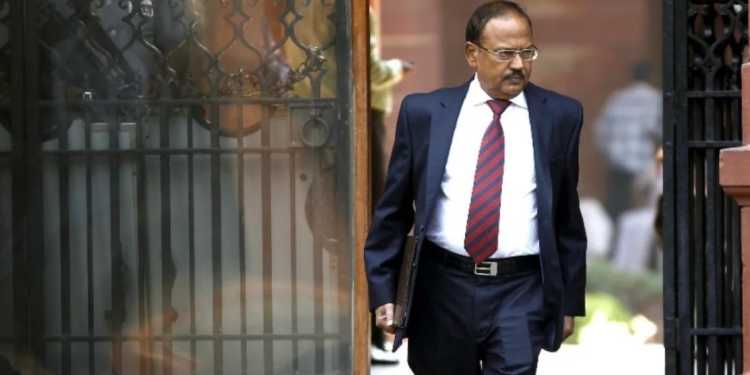Modi government, in a major defense policy planning overhaul, has revived Strategic Policy Group (SPG) in order to be a pillar of strength to the National Security Council and succor with a long-term strategic defense review and other issues pertaining to national security. From now onwards, the NSA- Ajit Doval- will head the SPG. Earlier, the SPG notified in 1999 had appointed cabinet secretary as its chairperson, also the body used to be a 16 member panel, the new notification makes it an 18-member body with the cabinet secretary and vice-chairman of NITI Aayog as its new members.
#BREAKING: Govt has formed a Strategy Planning Group (SPG) headed by National Security Advisor (NSA) Ajit Doval to assist the National Security Council of India to undertake long-term strategic defence review. pic.twitter.com/NO6GO3dtCh
— Aditya Raj Kaul (@AdityaRajKaul) October 8, 2018
The policy group will be the main mechanism for inter-ministerial coordination and integration of inputs in forming national security policies. The other members of SPG include Chief of Army Staff, Chief of Naval Staff, Chief of Air Staff, RBI governor, secretaries of external affairs, home, defense, finance, defense production, revenue, atomic energy, space, and National Security Council Secretariat besides scientific adviser to defense minister, secretary (R) in Cabinet secretariat and the Intelligence Bureau chief.
The reconstitution of SPG makes NSA Ajit Doval one of the most powerful bureaucrats in the country. According to the new set-up, NSA will hold SPG meetings, while the cabinet secretary will coordinate implementation of decisions taken by the body with various ministries and departments. When required, representatives of other ministries and departments will also be invited to the meetings of the group. The recent move has also brought National Security under the ambit of traditional functioning of bureaucracy- one minister to one ministry, which will lead to faster decision making.
NSA Ajit Doval is the best possible candidate for such an important job. He is known for his hawkish stance on security as well as his extensive experience in national security matters in different capacities. He has spent his life in undercover operations. Since PM Modi came to power, Ajit Doval has been one of the closest confidantes of PM Modi on foreign and security policies. PM Modi appointed him as India’s fifth national security adviser in 2014.
Ajit Doval is the only IPS recipient of Kirti Chakra, he was instrumental in reducing the menace of Kashmiri terrorism in the 1990s by introducing the concept of counter terrorism in India. He also played a pivotal role in anti-insurgency operations in Punjab and Mizoram. Ajit Doval was inside the Golden Temple in Amritsar in 1988 during Operation Black Thunder to gather critical information. He was one of three negotiators who negotiated the release of passengers from IC-814 in Kandahar in 1999. Quite interestingly, Ajit Doval was involved in the termination of all 15 hijackings of Indian Airlines aircraft from 1971–1999.
After being appointed as the NSA, he played a crucial role in ensuring the safe release of 46 nurses captured by ISIS from Iraq. It is also widely believed that Surgical Strikes against Pakistan were his brainchild. He is also credited with playing a crucial role in resolving the Doklam Standoff. Doval is the reason behind India’s doctrinal shift in policy with respect to Pakistan. India has now adopted the policy of ‘Defensive offensive’ and ‘Double Squeeze strategy’ against Pakistan sponsored terrorism. Ajit Doval is the The Silent Guardian, The Watchful Protector of India.
























